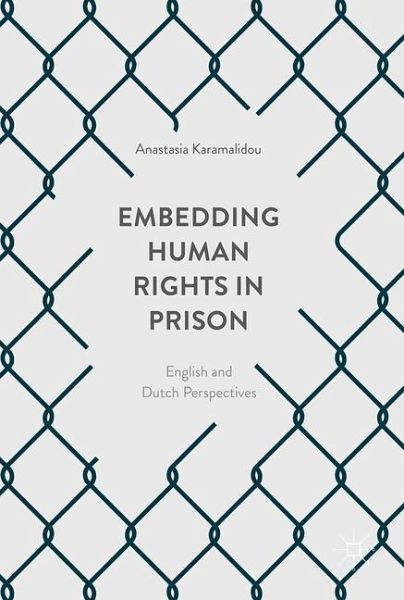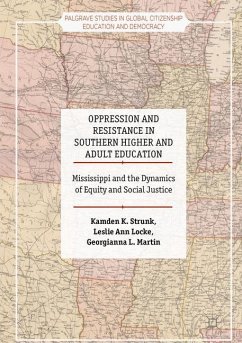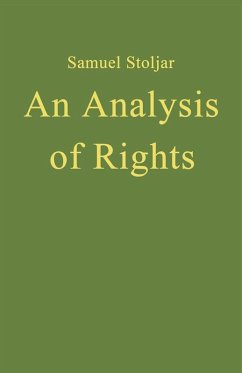
Embedding Human Rights in Prison
English and Dutch Perspectives

PAYBACK Punkte
34 °P sammeln!
This is a comparative study of prisoners' human rights in England, Wales and the Netherlands. Over the years changes in Dutch penal policy have smoothed to some degree the sharp contrasting differences that were once characteristic of the English and the Dutch prison systems. In this context, the study documents the impact of the two countries' penal policies on prisoners' human rights and presents prisoners' views on the human rights contribution to prison life and prisoner treatment. English and Dutch prisoners treat human rights recognition and protection as the yardstick of the prison's le...
This is a comparative study of prisoners' human rights in England, Wales and the Netherlands. Over the years changes in Dutch penal policy have smoothed to some degree the sharp contrasting differences that were once characteristic of the English and the Dutch prison systems. In this context, the study documents the impact of the two countries' penal policies on prisoners' human rights and presents prisoners' views on the human rights contribution to prison life and prisoner treatment.
English and Dutch prisoners treat human rights recognition and protection as the yardstick of the prison's legitimacy in contemporary democracies. Drawing on their respective experiences, Karamalidou highlights valuable lessons on what practices to adopt and what practices to cease with a view to embedding human rights in prison. A compassionate and thought-provoking study, this book will be of interest to undergraduate and postagraduate students of penology and human rights.
English and Dutch prisoners treat human rights recognition and protection as the yardstick of the prison's legitimacy in contemporary democracies. Drawing on their respective experiences, Karamalidou highlights valuable lessons on what practices to adopt and what practices to cease with a view to embedding human rights in prison. A compassionate and thought-provoking study, this book will be of interest to undergraduate and postagraduate students of penology and human rights.














